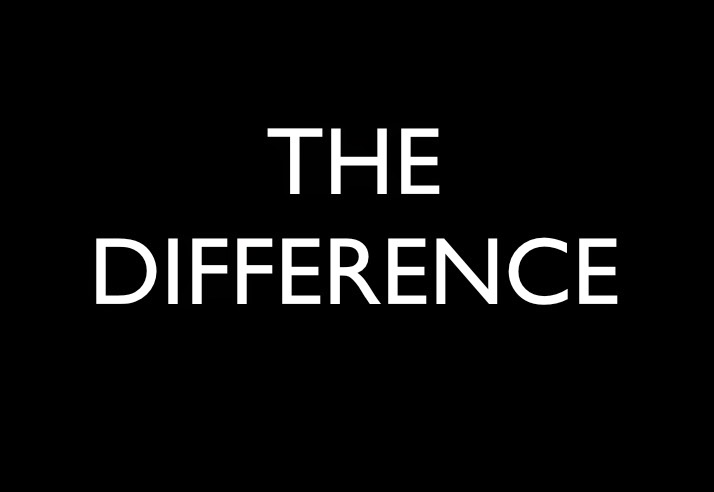本記事はアフィリエイト広告を利用しています。記事内で紹介しているサービスの一部には、広告収益が発生する場合があります。
- Philosophy
- Eastern Philosophy
- Psychology
- Sociology
- Education
- Japanese Language and Literature
- Chinese Language and Literature
- English Language and Literature
- French Language and Literature
- German Language and Literature
- Russian Language and Literature
- Film and Theater Studies
- Art History
- Japanese History
- Asian History
- Western History
- Archaeology
- Middle Eastern and Islamic Studies
はじめに
今回は早稲田大学文学部についてご紹介します。文学部は戸山キャンパスにあり、多様な学問分野を学ぶことができる魅力的な学部です。
文学部の理念・目標
早稲田大学公式によると、文学部の理念・目標は以下の通りです:
引用元:教育理念 – 早稲田大学 文学部
- 人間・世界を深く探り、言語・文学・表現の本質を解明し、人間・社会を歴史的に究明する。
- 豊かな学問的蓄積を受け止めて、新しい時代のなかで発展させるとともに、伝統的な学問体系をより洗練して確固たる学問として確立する。
これだけ見ると難しく感じるかもしれませんが、学生でこんなことをいちいち覚えている人はいませんし、覚える必要もありません。
知っておきたい略語
HSS(文学部) 文学部はよく「HSS」と呼ばれます。これは「School of Humanities and Social Science」の略です。入学当初は何のことか分からない人も多いはず。
SILS(国際教養学部) もう一つ有名なのが「SILS」です。これは国際教養学部(School of International Liberal Studies)の略で、SILSの学生は普段からSILSと呼んでいるので覚えておいてください。
文学部と文化構想学部の違い

文学部と文化構想学部は同じ戸山キャンパスにあり、一見すると違いが分かりにくいです。
学びの特徴の違い:
- 文学部:昔のものを掘り下げて究める
- 文化構想学部:現代社会に視点を持って新しいものを創造していく
個人的には、どちらかというと文化構想学部の方が楽しそうだと感じます(歴史が苦手なので…)。また,文化構想学部の方が面白そうなコースの名前してますね。
文学部のカリキュラム

各学年の特徴をざっくりと説明すると:
- 1年生:第二外国語がメイン
- 2年生:各コースの入門
- 3年生:そのコースをもっと掘り下げ、卒論のテーマを決める
- 4年生:卒論執筆
という感じです。これだけみると何も分からないですよね。僕もまだ入ったばかりなので分かりませんが,先輩たちはとにかく楽しそうです!!
文学部は「遊文」と呼ばれる
文学部は「遊文」と言われるぐらい授業が少ないです。実際に週11コマ程度で、1日2〜3授業を受けているだけで、後はフリーという状況です。フリータイムはみんなで遊びに行ったり,何でもし放題ですね。大学生なので夜遅くまで遊べますしね。これでも,フル単なので安心してください。
国公立大学や理系学部では高校生ぐらいの授業数があるところもあるので,週に20コマ以上あるところもあったりします。それに比べると文学部はかなり楽な方ですね。
文学部生の一日(1・3限の例)
詳細スケジュール:
- 12:00〜8:00 – 睡眠(8時間)※家が近いと8時まで寝られる
- 8:00〜8:30 – 準備・朝ご飯(30分)
- 8:30〜8:50 – 登校(20分)
- 8:50〜10:30 – 1限授業(1時間40分)
- 10:30〜13:10 – 昼休み・課題・友達とおしゃべり(2時間40分)
- 13:10〜14:50 – 3限授業(1時間40分)
- 14:50〜20:00 – フリータイム(バイトや家でゴロゴロ)(5時間10分)
- 20:00〜21:00 – 夜ご飯(1時間)
- 21:00〜22:00 – ゴロゴロ・友達と電話(1時間)
- 22:00〜23:00 – お風呂(1時間)
- 23:00〜 – ゴロゴロしてから就寝
この空いた時間を有効活用できるかどうかが、文学部生活の充実度を左右すると言えるでしょう。
1年次の特徴

1年生は週に4回第二外国語の授業があり、これは文化構想学部の学生たちと同じクラスになります。このクラスがほぼ毎日会う仲間なので、めちゃめちゃ仲良くなります。
重要なポイント:
- 1年次は第二外国語のウェイトが非常に重い
- 2年次から人気なコースに行きたい人は、この第二外国語を頑張り、高いGPAを取る必要がある
- 第二外国語の授業が多いので、2年次・3年次もその言語を極めればペラペラになれる
18のコース紹介
文学部には18のコースがあり、「文学っぽくない」ものもたくさんあります。実は半分くらいは文学関係ないです。
哲学コース
哲学するところです。答えのないことに対してとにかく考え続けられる忍耐力が必要となります。結構人気なコースなので、GPAは高い方がいいでしょう。
東洋哲学コース
アジアの哲学をするコースです。仏教やヒンドゥー教などが大きく関わってきます。空の思想や、老子・荘子などですね。
心理学コース
その名の通り心理学をするコースです。このコースはとても倍率が高く、1年次で高いGPAを取っておかないと入れないと思います。心理学って面白いですが、実験ばかりやっているという点で、がっかりする人もいるかもしれません。また、めちゃめちゃレポートが大変という噂があるのでお見知りおきを。
社会学コース
心理学コースとともに二大トップで人気のコースです。もちろんこちらも高いGPAが必要になります。人と社会の関係について、ミクロ・マクロ関係なく研究できるので、社会に関することを研究したい人におすすめです。
社会科学部との違いはあまり分かりませんが、第二外国語を極めたいと思っている人は文学部の社会学コースに行くのが良いでしょう。
教育学コース
人間形成に視点を置いて研究を行います。フィールドワークや実習など、いろんなことができます。教育学部との違いとしては、入試倍率が違いますね。どちらも難しいですが、文学部の方が倍率が毎年高いイメージです。
日本語日本文学コース
日本の文字や詩について研究するコースです。古典も扱います。日本の文化についてとにかく掘り下げていくコースで、未開拓の資料も研究できる可能性があるそうです。
中国語中国文学コース
中国について研究するコースです。中国語の資料を読む機会も多いと思うので、1年次では中国語を選択していた方が良いでしょう。このコースで中国の文化や歴史を学ぶことで、日本人の中国嫌いが治るのではないでしょうか(笑)。
英文学コース
第二言語としての英語について深く研究するコースです。私の担任はここのコースの人で、英語の効果的な学び方について研究しているそうです。教授によっては英語で授業をする人もいるので、疑似国際教養学部体験ができますね。
フランス語フランス文学コース
フランスの文学を中心に研究しますが、結構しっかりとした「文学」という感じで堅いイメージがあります。1年次はフランス語を選択していた方が良いでしょう。フランスのことだったら、文学に限らずいろんなことができると思うので、フランス大好きな人はぜひ。
ドイツ語ドイツ文学コース
フランス語コース同様、ドイツに関することを研究しますが、教授が明るくてとても楽しそうなイメージです。ドイツのことやドイツ語圏のことなら何でもできると思いますが、やはり1年次でドイツ語を選択しておくのが良いでしょう。
ロシア語ロシア文学コース
ロシアのことを研究します。日本は北方領土の関係でロシアと仲が良くないので、研究に支障が出てくることもありそうですが…。このコースも1年次にロシア語選択するのが良いと思います。
映像・演劇コース
演劇と映像のさらに二つに分かれるコースで、どちらもできるわけではありません。演劇は能やオペラなどを扱い、映像は映画を研究することもあるので、授業で映画を見ることもあるそうです。
注意点: 演劇を実際に学ぶところではありません。あくまで学問として学び、俳優などを育成するコースではありません。
美術史コース
世界の美術について研究するコースで、美術のことならある程度何でも研究できると思います。このコースは面白そうで、一枚の絵でもいろんなことが分かって、それが時代ごとにいろいろあって、コース説明を聞きながらわくわくしました。ヨーロッパの美術やメキシコの美術など、美術館にずっといられるという人には向いていると思います。
日本史コース
日本史や日本の昔について研究するコースです。古典や日本の詩に興味がある人はこのコースですね。友達は日本史に出てくる人物の研究がしたいからこのコースに行くそうです。
アジア史コース
その名の通りアジアの歴史について研究するコースです。ですが、大半を中国が占めるので、中国好きな人にはとても良いかもしれません。このコースに行きたいという人をあまり聞いたことがないので、そこまで人気がないコースなのかもしれません。
西洋史コース
フランス、ドイツ、イタリア、スペインなど西洋の歴史について研究するコースで、ナポレオンなどを扱います。ちょっと意識高めのコースなのかもしれません。真相は入ってから確かめましょう。
考古学コース
その名の通り考古学を学ぶコースで、考古学を知ることで、限られた情報からいろいろなことを推測する力が身につくと思います。探偵になれますね。日本の考古学ももちろん研究対象で、新しい遺物を見つけられるかもしれませんよ。
中東・イスラームコース
中東とイスラムに分かれており、中東のことなら何でも、イスラムのことならどの国でも研究対象になります。例えば日本のイスラム教を研究するのもOKです。中東・イスラムどちらも日本人には馴染みがないからこそ、たくさんの発見ができそうですね。
最後に
どのコースにも言えることは、どのコースも結構「自由」ということです。自分の研究したいことがあれば、それに近い学問のコースに入れば、教授たちもサポートしてくれますし、思う存分研究することができるでしょう。
1年次には各コースを学べるようなオンデマンド授業(必修)があるので、コースについて入学時から詳しく知っておかなければならないということはありません。安心してくださいね。
文学部はとにかく楽しいです。遊文といわれるように学校にいる時間が少なく,自分の趣味や遊びも思いっきり楽しめるでしょう。大学で思いっきり楽しみたいという人あまり勉強したくないという人にはうってつけですね。
この記事が早稲田大学文学部を目指す皆さんの参考になれば幸いです。どのコースも魅力的で、きっと自分に合った学問分野が見つかるはずです!
Waseda University School of Humanities and Social Sciences – Complete Guide to 18 Majors & Student Life
This post contains affiliate links. I may earn a commission if you purchase services introduced in this article.
Introduction
Today, I’ll be introducing the School of Humanities and Social Sciences at Waseda University! This faculty is based on the Toyama Campus and offers a wide variety of academic fields to explore. It’s honestly a super exciting and flexible place to study.
Faculty Mission & Vision
According to Waseda University’s official website, the School of Humanities and Social Sciences aims to:
- Deeply explore humanity and the world, clarify the essence of language, literature, and expression, and examine humans and society from a historical perspective.
- Embrace the rich academic traditions while evolving them to meet the demands of modern times, refining and establishing a solid academic foundation.
Sounds pretty deep, right? But honestly, no student memorizes this word for word. And don’t worry—you don’t need to either!
Useful Abbreviations You Should Know
HSS (School of Humanities and Social Sciences)
You’ll often hear this faculty called “HSS.” It stands for “School of Humanities and Social Sciences.” Most first-years have no clue what that means at first, so don’t stress!
SILS (School of International Liberal Studies)
Another common one is “SILS.” This refers to Waseda’s School of International Liberal Studies. SILS students casually call themselves “SILS,” so remember that.
The Difference Between HSS and Culture, Media and Society Faculty
Both faculties are located on the Toyama Campus, so it’s easy to confuse them.
Here’s the key difference:
- HSS: Dig deep into the past and master traditional knowledge.
- Culture, Media and Society Faculty: Look at modern society with fresh eyes and create something new.
Personally, I think Culture, Media and Society sounds more fun (maybe because I’m not a big fan of history…). Plus, the course names there sound way cooler!
The HSS Curriculum
Here’s a quick breakdown of what to expect each year:
- 1st Year: Focus on learning a second foreign language.
- 2nd Year: Get an introduction to your chosen course.
- 3rd Year: Dive deeper into your course and decide on your thesis topic.
- 4th Year: Write your graduation thesis.
That’s about it! Honestly, it still feels a bit abstract to me, but all the seniors say they’re having a blast!
HSS is known as “Asobun” (Playful Humanities)
This faculty is jokingly called “Asobun,” meaning it’s known for having fewer classes. You’ll typically have around 11 classes a week—just 2-3 per day—and the rest is your free time. You can hang out with friends, explore Tokyo, do part-time work, or just chill. Despite the free time, you can still graduate with all your credits, so no worries!
Compared to national universities or science faculties, where some students have 20+ classes a week, HSS life is super chill.
A Day in the Life of a HSS Student (Example with 1st and 3rd Periods)
My Schedule Example:
- 12:00 AM – 8:00 AM: Sleep (Yes, you can sleep until 8 if you live nearby!)
- 8:00 – 8:30 AM: Get ready & breakfast
- 8:30 – 8:50 AM: Commute to campus
- 8:50 – 10:30 AM: 1st period class
- 10:30 – 1:10 PM: Long break (chill, do homework, chat with friends)
- 1:10 – 2:50 PM: 3rd period class
- 2:50 – 8:00 PM: Free time (part-time job, hang out, Netflix, etc.)
- 8:00 – 9:00 PM: Dinner
- 9:00 – 10:00 PM: Relax or chat with friends
- 10:00 – 11:00 PM: Bath time
- 11:00 PM – : Chill, sleep whenever
The key to enjoying HSS life is how you use your free time!
First-Year Highlights
First-year students have four second-language classes a week, and you’ll be in the same class as students from the Culture, Media and Society Faculty. Since you see these people almost every day, you’ll naturally get really close!
Pro tips:
- Second-language classes carry a lot of weight in your grades.
- If you want to get into a popular course from your 2nd year, aim for a high GPA by doing well in these classes.
- If you stick with your second language, you could become fluent by 3rd year!
Introduction to the 18 HSS Majors
There are 18 different majors in HSS, and honestly, not all of them feel “literature-ish.” In fact, half of them aren’t really about literature at all!
Philosophy
You’ll train your patience by thinking about questions with no clear answers. It’s a popular major, so GPA matters!
Eastern Philosophy
Study Asian philosophies like Buddhism, Hinduism, Laozi, and Zhuangzi.
Psychology
A super competitive major! You’ll need a high GPA. Just a heads-up—it’s heavy on experiments and report writing.
Sociology
Along with Psychology, this is a top-choice major. You’ll explore society and human relationships from all angles. Pro tip: If you love languages, Sociology in HSS might be better than in other faculties.
Education
Focus on human development. Lots of hands-on fieldwork and practical activities.
Japanese Language and Literature
Dive deep into Japanese language, poetry, and classical literature. There are even opportunities to explore uncharted historical documents!
Chinese Language and Literature
Study Chinese culture, literature, and history. If you take Chinese as your second language, you’ll have a head start.
English Language and Literature
Research English as a second language. Some professors even teach in English, so it feels a bit like SILS!
French Language and Literature
Focus on French literature and culture. If you love France, this major is for you.
German Language and Literature
Similar to the French major, but for German. The professors are known for being super friendly and fun.
Russian Language and Literature
Study Russia’s language, culture, and history. Given Japan-Russia relations, it could be a fascinating (and challenging) major.
Film and Theater Studies
Split into Theater and Film tracks. Note: You won’t train to be an actor; it’s academic research.
Art History
Research art from around the world. If you love museums and discovering the stories behind art, this one’s for you!
Japanese History
Focus on Japan’s past. Great for history buffs or those interested in old Japanese poetry and culture.
Asian History
Study the history of Asia, with a heavy focus on China. Perfect for China enthusiasts!
Western History
Explore the history of Western countries like France, Germany, Italy, and Spain. A bit of an “elite” vibe, but worth exploring.
Archaeology
Learn to piece together the past from limited clues—almost like becoming a detective! You might even discover new artifacts.
Middle Eastern and Islamic Studies
Study Middle Eastern and Islamic culture, including Islam in Japan. Since it’s unfamiliar to many Japanese, there’s so much to discover.
Final Thoughts
One thing all these majors have in common is freedom. If you have a research topic you’re passionate about, the professors will support you and help you dive deep into it.
There are also mandatory on-demand classes for first-years that introduce each course, so don’t stress if you don’t have it all figured out when you enter.
HSS is honestly so much fun! With fewer classes than other faculties, you’ll have plenty of time to enjoy hobbies, hang out with friends, or explore Tokyo. If you want to enjoy university life to the fullest (and aren’t a huge fan of constant studying), this faculty is a great choice.
I hope this article helps anyone aiming for Waseda’s School of Humanities and Social Sciences. With so many interesting courses, I’m sure you’ll find the perfect one for you!

